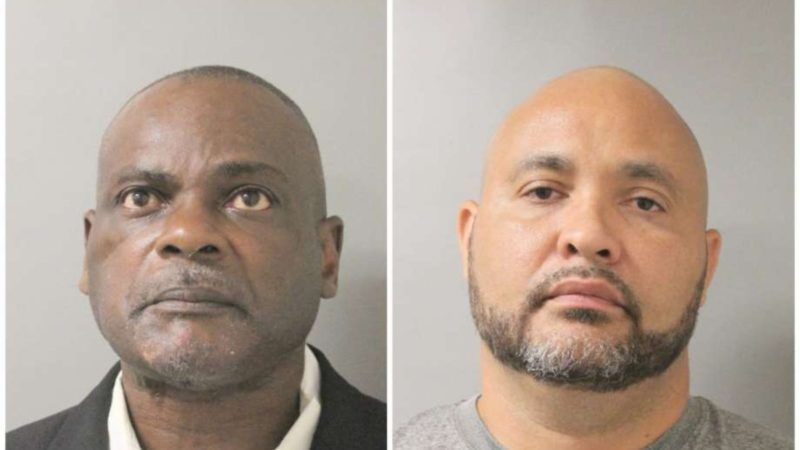Houston D.A. Doubles the Scope of Her Case Review Following a Deadly Drug Raid Based on a Phony Affidavit
After declaring another man arrested by Gerald Goines "actually innocent," the Harris County district attorney says prosecutors are re-examining cases going back to 2008.

Harris County District Judge Kelli Johnson last week declared Steven Mallet, who served 10 months in jail after he was arrested for selling crack cocaine in 2008, "actually innocent." Earlier this month, Harris County District Judge Ramona Franklin reached the same conclusion regarding Mallet's brother, Otis, who served two years for his alleged involvement in the same transaction.
Both men were arrested by Gerald Goines, the veteran narcotics officer who spearheaded the January 2019 drug raid that killed a middle-aged couple, Dennis Tuttle and Rhogena Nicholas, in their home on Harding Street. Goines invented a heroin purchase by a nonexistent confidential informant to justify that raid, which discovered no evidence of drug dealing.
In response to the false testimony identified in the cases against the Mallet brothers, Harris County District Attorney Kim Ogg has more than doubled the time period covered by her re-examination of cases involving Goines and other officers in Squad 15 of the Houston Police Department's Narcotics Division. "Because of the revelations involving the Harding Street raid, District Attorney Ogg initiated a review of 14,000 cases that Goines and his squad worked over the last five years," a press release from Ogg's office says. "With the Mallet cases now being revealed, that review is stretching further back, to 2008."
If the squad handled 14,000 cases in five years, the total number of potentially questionable cases since 2008 is probably something like 30,000, and it's by no means clear that misconduct by narcotics officers began that year. "The sheer number of the cases that could be involved is daunting," Ogg said. "Even though it is challenging, our mandate is to always and continually seek justice."
Ogg's review is not necessarily limited to cases involving "actually innocent" defendants. "Justice dictates that we continue going through questionable cases and clearing people convicted solely on the word of a police officer we can no longer trust," she said. "When the only evidence of criminal culpability is the testimony of an untrustworthy officer, we are going to work as fast as possible to right the situation."
Prosecutors already have dismissed dozens of pending cases involving Goines. Between 2008 and 2019, according to Ogg's office, Goines worked on 441 cases, which led to 263 convictions of 234 defendants. "The claims that are going to tend to be successful are going to be these one-witness claims," Josh Reiss, head of Ogg's post-conviction unit, told The Houston Chronicle. "How many of those one-witness claims there are in these 263, I don't know. It's going to take some time to dig in, but that's what we're going to do."
The potential problems may extend far beyond the cases initiated by Goines, who faces state murder charges and federal civil rights charges as a result of the Harding Street raid. Another member of Squad 15, Steven Bryant, faces state and federal charges for backing up Goines' fictitious account of sending a confidential informant to buy heroin from Dennis Tuttle. Given the evidence that Goines, who was employed by the Houston Police Department for 34 years, had been framing people since at least 2008, it seems likely that other officers are implicated in that pattern of dishonesty, which would make their testimony untrustworthy as well.
Otis Mallet, who was convicted by a jury, served two years of an eight-year sentence before he was released on parole. He has always maintained his innocence. Steven Mallet spent 10 months in jail before pleading guilty as part of a deal that did not require him to spend any more time behind bars. "He pled guilty because he had been in jail for 10 months and they were offering him a deal basically for time served," said public defender Bob Wicoff. "This happens a lot where people have to get out and resume their lives. They [have] jobs and families, [so] they plead guilty even when they're not just to get out."


Show Comments (46)